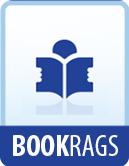
|
| Name: _________________________ | Period: ___________________ |
This test consists of 5 multiple choice questions, 5 short answer questions, and 10 short essay questions.
Multiple Choice Questions
1. How old is the boy at the talent show that is described as wearing a fake moustache and doing a magic show?
(a) 16
(b) 10
(c) 18
(d) 12
2. Auntie Lindo tells Jing-Mei’s mother that all day long she has no time to do anything but what, when she is bragging about her daughter?
(a) Clean her daughter’s pageant dresses
(b) Polish her daughter’s beauty crowns
(c) Vacuum her daughter’s messes up
(d) Dust off her trophies
3. After Jing-Mei’s mother tells her that she has enrolled her in piano lessons, Jing-Mei says, “When my mother told me this, I felt as though I had been” what?
(a) Given a kingdom
(b) Sent to hell
(c) Swept under the rug
(d) Sent to heaven
4. Jing-Mei is to play a song from what Schumann opus at the talent show?
(a) Butterflies
(b) Flower Piece
(c) Scenes from Childhood
(d) Album for the Young
5. Jing-Mei describes Mr. Chong’s mother as having a particular smell about her of what?
(a) Baked apple pies and the smell of autumn
(b) Freshly mowed grass and spring
(c) A baby that had done something in its pants
(d) Fresh flowers and stale perfume
Short Answer Questions
1. After Jing-Mei’s performance at the talent show, she says, “We could have escaped during intermission.” What does she say “must have anchored my parents to their chairs”?
2. What musical term from the story refers to a group of notes taken in ascending or descending order within the compass of one octave?
3. Who does Jing-Mei tell her mother she wishes she were like as they argue about piano practice after the talent show?
4. What answer does Jing-Mei give when her mother asks her early in the story, “What’s the capital of Finland?”
5. Jing-Mei says of Mr. Chong when she began piano lessons that “he must have been younger than I thought, since he” what?
Short Essay Questions
1. What “transformation” does Jing-Mei undergo while looking into the mirror as a child?
2. What does Jing-Mei discover about Mr. Chong’s disabilities as she studies with him? How does this discovery influence her actions?
3. How and when did the repeal of the Chinese Exclusion Act influence immigration in the U.S.?
4. What is the most significant element of the communication and culture gaps between Jing-Mei and her mother in the story?
5. What arrangement is made between Suyuan Woo and Mr. Chong in regards to Jing-Mei’s piano study and practice?
6. How does the central conflict of the story begin to manifest in Jing-Mei’s mind following her revelation in the mirror?
7. How does Jing-Mei describe Waverly Jong in the narrative? What has Waverly gained recognition through?
8. How does Jing-Mei say her perceptions differed from her mother’s in regard to ambition as she looks back at the end of the story?
9. How does Suyuan Woo develop and maintain her sense of identity in the story?
10. What innovations in literary style is Amy Tan known for?
|
This section contains 984 words (approx. 4 pages at 300 words per page) |

|




